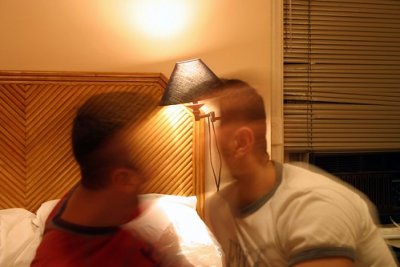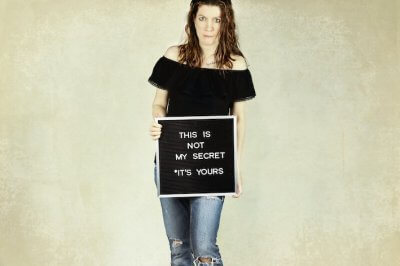The Psychological Effects of Stealthing – Yes, It’s a Big Deal

By: Nenad Stojkovic
by Andrea M. Darcy
A sexual encounter sees you the victim of stealthing. You are upset, but you didn’t catch an STI, you aren’t pregnant, so you decide the best thing is to just put it behind you.
But it’s not always that easy. Stealthing can take a serious psychological toll we need to address.
The meaning of stealthing
The other person might try to tell you that they ‘accidentally’ took off the condom, or were ‘so drunk they weren’t thinking straight’, or ‘they thought you wouldn’t mind’. Stealthing is not an accident but a premeditated act and perpetrators tend to be repeat offenders.
Nor is it a ‘just a part of the gay scene’ that you need to ‘get over’ (although it is important to recognise that the gay community has a different history around consent issues, discussed well in this article.)
These are all just excuses to hide the fact that a sexual partner taking off the condom, or purposely damaging it without your knowledge and clear consent, is a violation that can be seen as sexual assault under British law.
Why stealthing is a big deal for mental health
When we are violated, it can register in our brain trauma.
And trauma can creep up on us. We can feel okay, and like we are ‘over it’. Then suddenly, a week or two or even months later, we are definitely not okay. Our moods are all over the place, we feel randomly full of rage, or like there is something wrong with us.
There is nothing wrong with you. Feeling upset is an appropriate response when we have experienced something upsetting. It’s pretending we are fine that is the actual issue.
But friends who experienced similar are fine
Someone else you know experienced stealthing and they were a bit shaken from it, but otherwise fine? Wondering why are you struggling so much in comparison?
Trauma can be cumulative. We can have old, unprocessed traumas, and a new trauma adds to the other ones until we explode our years worth of upset. Our rage is enormous as it’s not just for the violation, but for all the violations and disrespect we have experienced right back to childhood.
The psychological side effects of stealthing

By: Enrico
So just how can stealthing affect our mental and emotional health? As a form of assault, it can have the same effects on mental health as other forms of sexual assault.
The National Crime Squad of England and Wales (NCSEW) suggests that almost two-thirds of sexual assault victims report mental or emotional problems as a result.
1. Self blame.
“I should have known better, I should have seen the signs they were a bad person, what was I thinking going home with them, why am I such an idiot…” Sound familiar?
We can end up in spirals of guilt and shame that distract us to the point our daily coping is affected. Even worse, they can mean we start to self-doubt and question our own sanity. What if it didn’t happen like we think? If it really was an accident?
It’s not your fault and you are not alone. A 2018 Australian survey of thousands of users of a Melbourne sexual health centre found that one in three women and one in five men who took part reported being stealthed.
2. Low self-esteem.
And guilt destroys self-esteem. At worst, we can start to think we deserved it. That our value is so low that it was bound to happen to us instead of someone else.
3. Mood swings.
You might suddenly start to go from one mood to the next in a way you don’t usually. Giddy one moment, snapping at loved ones the next.
4. Depression and anxiety.

photo by: Jen Theodore
Just feel numb and tired? Can’t think straight? You might have depression. It’s as if our mind can’t process the experience, so just decides to check out, so to speak.
Or feel increasingly afraid? Like something else bad is going happen? Constantly scanning for danger and on an adrenaline high? Anxiety is a common after effect of assault.
5. Sleep problems.
Feel just fine and sure you are over it? But experiencing restless sleep, waking up exhausted, struggling to fall asleep, or sleeping more than usual and still feeling tired?
Some of us are very good at compartmentalising our emotional pain when we are awake. But when we lie down in bed without the capacity to distract ourselves there is all our pain and upset, roaring up for attention. Or we fall asleep and live out our anxiety in our dreams or nightmares and wake up exhausted.
6. Eating issues.
Overeating can be a way to numb emotional upset or to punish ourselves if we are engaging in self blame. Weight gain can also be an unconscious manoeuvre to feel safer following an assault.. Under eating can be a way of trying to gain control if an experience has left us feeling like we have none.
7. Trust issues.
This one hardly needs explanation. You trusted someone with your most precious thing, your body. They broke your trust. It’s entirely normal to have some trust issues to work though directly after sexual assault.
8. Body image changes.
Are you suddenly hiding your body with clothes? Feeling ugly? Over exercising because you suddenly see only flaws? Sexual violation can leave us feeling dissociated from our body, or having a new unhealthy relationship with it.
What do I do if this is me?
Raging against and hating the perpetrator might feel good at first, and we need to process anger. But it gets to the point that hatred and fury just hurts you, instead of the person that did you wrong. We need to process our experience.
It’s not about having to forgive someone, or let it go, or forget about it. But it is about processing the experience and your emotions so they no longer diminish you on a daily basis. It’s about self care, and staying you instead of letting a sexual assault turn you into someone else.
Do I have to do therapy?
There are many ways to process trauma. It’s your experience, and your healing journey. Some people turn to journalling, or creativity. Others join support groups, enjoying the support of others who deeply ‘get it’. And some people find their way forward with self help books and courses.
But if you are feeling ‘stuck’ in life since being stealthed? If you are not coping, if your mental health is unstable, if it’s affecting your friendships and work life? Then reaching out for counselling or psychotherapy is recommended.
A therapist is not going to tell you what to do. Their job is to listen in a way that helps you find your own answers, and to teach you tools so that you can cope and bounce back.
A victim of stealthing, and want to confidentially talk to an expert who understands? We connect you with friendly, highly regarded talk therapists in central London locations. Or use our online platform to access UK-wide registered therapists and online counselling now.
Still have a question about the psychology of stealthing? Or want to share your experience with other readers? Use the comment box below. All comments are moderated to respect our readers.
 Andrea M. Darcy is a mental health advocate and the lead writer of this site. She strongly supports the criminalisation of any and all forms of sexual assault, violation, and disrespect. Find her @am_darcy
Andrea M. Darcy is a mental health advocate and the lead writer of this site. She strongly supports the criminalisation of any and all forms of sexual assault, violation, and disrespect. Find her @am_darcy




